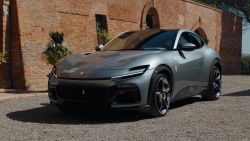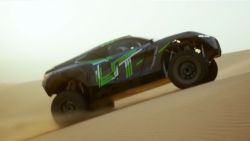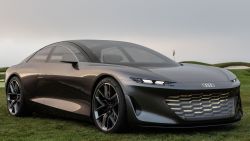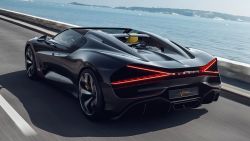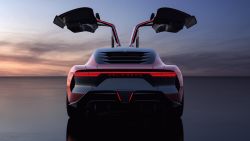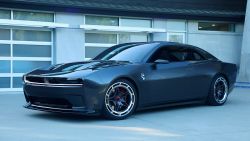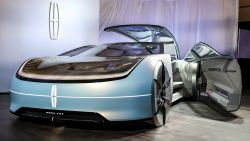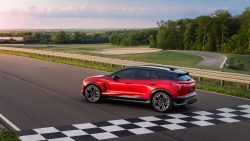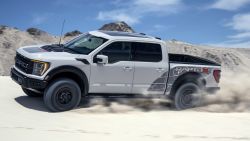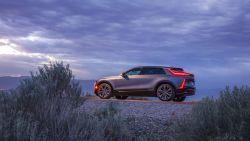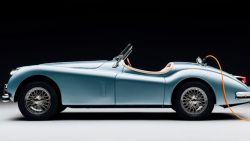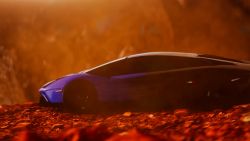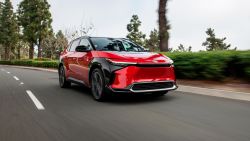The Ford Mustang Mach-E has been given Car and Driver’s first EV of the Year award. The award was open to all fully electric vehicles currently for sale in the US.
The Mach-E beat out 10 other vehicles, including three different Tesla models, the Audi E-Tron, the Volvo XC40 Recharge and the Porsche Taycan.
Car and Driver said it put the vehicles through a variety of trials, including a 75-mile-per-hourdriving range test – to see how far each car could travel on a full charge – various measured and timed performance tests and subjective driving feel tests on public roads. Then all the vehicles were taken on a 1,000-mile road trip from Car and Driver’s Michigan headquarters to Virginia and back.
In giving the award to the Mustang Mach-E, Car and Driver staffers credited the SUV’s combination of practicality and performance.
“The Mach-E has the driving dynamics and design to push new buyers past mere acceptance of EVs to excitement,” Car and Driver’s Eric Tingwall wrote in an article about the award.
Staffers also noted the quality of the Mustang Mach-E’s interior. Tingwall wrote that the “the Ford has the premium materials and build quality to make the more expensive luxury cars in this year’s EV test look like rip-offs.”
The Teslas in the competition – a Model S, a Model 3 and a Model Y – were hampered by quality problems.
At one point, the cruise control system on the Tesla Model Y abruptly stopped working with no warning, said Sharon Silke Carty, Car and Driver’s editor-in-chief, in an interview with CNN Business.
“All of a sudden I was going 30 in the middle of the highway,” she said.
The touchscreen system, which is critical because it operates most of the Tesla’s controls, stopped working not long after the car arrived for testing, the review said. Car and Driver also noted poor fits between parts and a “grating squeak” from the rear seat.
The Model 3 had a large gap around the hood, Car and Driver noted. Another Tesla they tested, the Model S, only had 3,600 miles on it but its front motor failed. It was repaired and the car continued the tests, but the incident ended its chance of winning the award, Car and Driver said. The Tesla Model X SUV was not included in the tests because of its low sales, according to the publication.
Tesla, which generally does not respond to media inquiries, has not answered CNN Business’s request for comment on the Car and Driver report.
The 1,000-mile trip was one area in which the Tesla vehicles had an advantage. Tesla has its own proprietary charging network. It’s extensive, well-maintained and it only works with Teslas. The other electric vehicles sometimes had to wait at public fast charging stations behind other EVs in the test. That sort of backup can happen with Teslas in California, where they’re ubiquitous. But the testers said it didn’t seem to be an issue through the Midwest. Some of the non-Tesla chargers also had technical problems so they either didn’t work at all or didn’t charge as fast as they were supposed to.
The Tesla Model S, Model Y and Model 3 finished the trip first, second and third, in that order. The Mustang Mach-E came in fourth, having been hampered by a slow charger.
The Car and Driver judges were impressed by some of the other cars, such as the Porsche Taycan 4S, which testers said they found to be “invigorating” to drive. It also came closest of all the vehicles to meeting its EPA-estimated highway driving range. The Kia Nero EV, aside from its “dorky looks” and “economy grade” interior materials, was praised by Car and Driver for its responsive acceleration and handling, as well asits ample cargo space.
Some automakers did not provide cars for Car and Driver to test. That’s why the Jaguar I-Pace, Chevrolet Bolt EUV and EV, as well as the BMW i3 and the Mini Cooper SE were not included in the competition. The magazine also could not test models that aren’t in production yet, such as the GMC Hummer EV and BMW i4. Those models could be eligible for the award next year.



